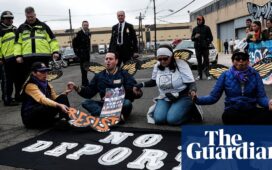As anger over the fatal police shooting of a black man and conditions at an immigration detention facility blow up into loud protests at Aurora City Council meetings, the candidates for mayor say those aren’t the issues voters say they care about most.

Provided by Montgomery campaign
Omar Montgomery
The five hopefuls on the Nov. 5 ballot say it’s bread-and-butter issues like transportation, crime, the pace of growth and mounting home prices that have been the hot topics on the campaign trail.
“People are concerned about affordable housing, attainable housing,” said candidate Omar Montgomery, president of Aurora’s NAACP chapter. “And they want more housing options as we grow.”
Another candidate, former Councilwoman Renie Peterson, said voters want more thoughtful growth policies.
“I would propose high-rise condominiums or apartments in the core of original Aurora and at all light rail stations,” she said. “Planning would enable us to create a livable, walkable community. Such a plan would draw millennials. Aurora must take into consideration as we grow not to sprawl.”
Councilwoman Marsha Berzins told The Denver Post that the voters she has spoken to are mostly “happy with the direction Aurora is going.” Their focus, she said, is decidedly more pedestrian: “speeders, barking dogs, trash and crime.”

Provided by Coffman campaign
Mike Coffman
That’s not to say the candidates for Aurora’s top elected position don’t have thoughts about the recent calls by protesters to make Aurora a “sanctuary city” for immigrants or to jail police for the Aug. 24 death of Elijah McClain.
About three dozen people showed up at last week’s council meeting and spent more than hour haranguing council members during public comment before briefly shutting down the proceeding with a group chant. They pledged to continue returning to council meetings until their concerns are addressed.
“Aurora should not become a sanctuary city,” said candidate Mike Coffman, the former congressman who represented Aurora in Washington, D.C. “I support Aurora’s current position, under which it is the responsibility of the federal government to enforce immigration laws but the names of those held in the city’s detention center are shared with federal authorities and they (ICE) decide whether to pick up a detainee or not.”

Provided by Peterson campaign
Renie Peterson
While there is not a singular definition for a sanctuary city, anti-sanctuary legislation in Congress usually defines it as a city that prohibits police from complying with Immigration and Customs Enforcement detainers.
Peterson takes a similar position to Coffman, saying she would “enforce the existing laws we have and cooperate with state and federal officials.”
Ryan Frazier, also a former council member, said the city’s current approach to immigration is on solid ground.
“Our police are not going to be participating in sweeps or in enforcing immigration policy,” he said. “But that said, we are not a sanctuary city.”

Provided by Berzins campaign
Marsha Berzins
A spokesman for the Party for Socialism & Liberation — Denver, which organized the “Kick ICE Out of Aurora!” rally at last week’s council meeting, said “for the people in ICE detention, their families, and their communities, the conditions in the ICE facility are of serious concern.”
“For Black families, like Elijah McClain’s, police murder is … an issue of life and death.”
The group’s spokesman did not provide his full name and would not say how many of last week’s protesters are from Aurora.
Frazier and Montgomery, both of whom are African-American, said the investigation into McClain’s death — the 23-year-old suffered a brain injury during the confrontation with police and died nearly a week later — must be completed before disciplinary action is pursued against the officers involved.
“As a black man, I get it — I get the concerns,” Frazier said. “We need to take an objective look, look at the facts of the situation and then proceed.”
Montgomery also called for patience but said an independent investigation into McClain’s death is needed. Currently, the incident is being investigated by Denver and Aurora police, as well as the 17th Judicial District Attorney’s Office.
“To the community, it’s the police policing the police,” he said. “Is that a process the community can have 100% confidence in? Many will say no.”
The Aurora mayoral contest has become an expensive race. Campaign finance reports filed last week, the most recent accounting of money collected and spent, show that the candidates have raised nearly $1.1 million collectively. Nearly half of that total belongs to Coffman.
A write-in candidate, Tiffany Grays, is also in the race for mayor.
Council members Charlie Richardson, Bob Roth and Françoise Bergan each face a single opponent in their ward-specific races. A half dozen candidates are vying for two at-large council seats.
An issue in the race that has recently attracted notice from a national perspective is gun control. Giffords PAC, a group created by former U.S. Rep. Gabrielle Giffords, last week began running a digital ad targeting Coffman for past support he received from the National Rifle Association. The PAC backs Montgomery.
Coffman said the regulation of firearms is best done at the state level.

Provided by Frazier campaign
Ryan Frazier
“The role of municipal government is to enforce the laws that are on the books to reduce gun violence,” he said. “In addition, the city of Aurora can sponsor programs that encourage the safe storage of firearms and responsible gun ownership.”
Montgomery said he welcomed the support from the Giffords PAC. But as a gun owner, he said, he takes the Second Amendment seriously.
“It’s not about taking away people’s guns — it’s about keeping the community safe,” he said.








